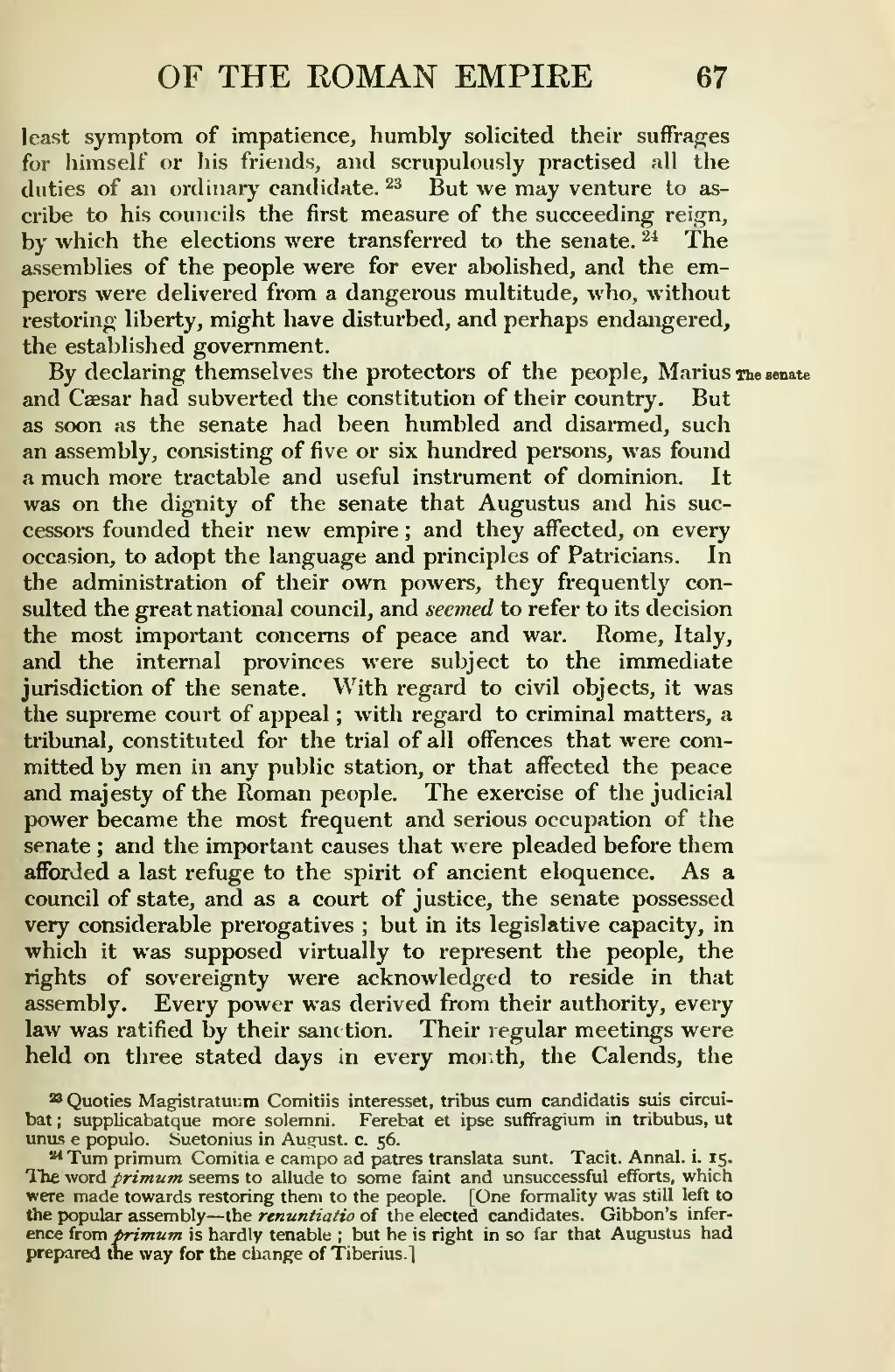This page has been validated.
OF THE ROMAN EMPIRE
67
least symptom of impatience, humbly solicited their suffrages for himself or his friends, and scrupulously practised all the duties of an ordinary candidate.[1] But we may venture to ascribe to his councils the first measure of the succeeding reign, by which the elections were transferred to the senate.[2] The assemblies of the people were for ever abolished, and the emperors were delivered from a dangerous multitude, who, without restoring liberty, might have disturbed, and perhaps endangered, the established government.
The senate By declaring themselves the protectors of the people, Marius and Cæsar had subverted the constitution of their country. But as soon as the senate had been humbled and disarmed, such an assembly, consisting of five or six hundred persons, was found a much more tractable and useful instrument of dominion. It was on the dignity of the senate that Augustus and his successors founded their new empire; and they affected, on every occasion, to adopt the language and principles of Patricians. In the administration of their own powers, they frequently consulted the great national council, and seemed to refer to its decision the most important concerns of peace and war. Rome, Italy, and the internal provinces were subject to the immediate jurisdiction of the senate. With regard to civil objects, it was the supreme court of appeal; with regard to criminal matters, a tribunal, constituted for the trial of all offences that were committed by men in any public station, or that affected the peace and majesty of the Roman people. The exercise of the judicial power became the most frequent and serious occupation of the senate; and the important causes that were pleaded before them afforded a last refuge to the spirit of ancient eloquence. As a council of state, and as a court of justice, the senate possessed very considerable prerogatives; but in its legislative capacity, in which it was supposed virtually to represent the people, the rights of sovereignty were acknowledged to reside in that assembly. Every power was derived from their authority, every law was ratified by their sanction. Their regular meetings were held on three stated days in every month, the Calends, the- ↑ Quoties Magistratuum Comitiis interesset, tribus cum candidatis suis circuibat; supplicabatque more solemni. Ferebat et ipse suffragium in tribubus, ut unus e populo. Suetonius in August, c. 56.
- ↑ Turn primum Comitia e campo ad patres translata sunt. Tacit. Annal. i. 15. The word primum seems to allude to some faint and unsuccessful efforts, which were made towards restoring them to the people. [One formality was still left to the popular assembly—the renuntiatio of the elected candidates. Gibbon's inference from primum is hardly tenable; but he is right in so far that Augustus had prepared the way for the change of Tiberius.]

